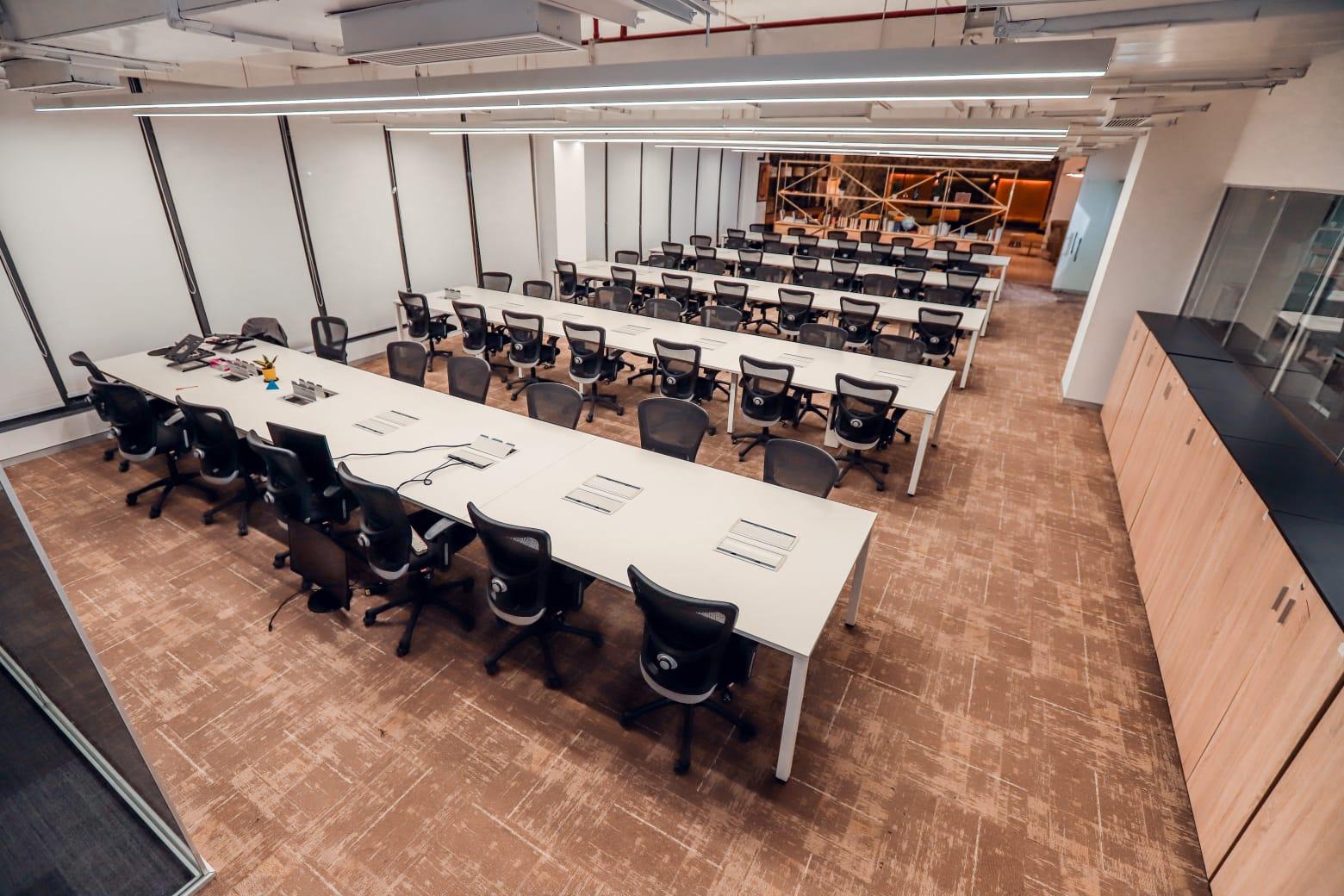In recent years, the trend of flexible workspaces has grown significantly, with co-working spaces and managed office space being popular choices among businesses and entrepreneurs. While these two types of spaces may seem similar, there are significant differences between them that are important to understand when considering which option is best for your business needs.
Coworking Spaces
Coworking spaces are shared office spaces where individuals from different companies and professions work in a communal setting. Coworking spaces are typically set up in open-plan layouts, offering flexible seating options such as hot desks, dedicated desks, and private offices. Some of the main features of coworking spaces include:
Flexibility: Coworking spaces offer flexible membership plans, allowing individuals to choose a plan that best suits their needs and budget.
Community: Coworking spaces foster a sense of community among members, encouraging collaboration, networking, and socializing.
Amenities: Coworking spaces offer a range of amenities, including high-speed internet, meeting rooms, printing and scanning facilities, and communal areas.
Location: Coworking spaces are typically located in prime locations, making it easier for members to meet with clients and partners.
Managed Office Spaces
Managed office space are fully-furnished and serviced office spaces that are managed by a third-party provider. These spaces are typically leased out to businesses and entrepreneurs who require a private office but do not want the responsibility of managing the space. Some of the main features of managed office space include:
Privacy: Managed office spaces offer complete privacy, with each space being fully enclosed.
Customization: Managed office spaces offer the option of customizing the space to meet the specific needs of the business.
Services: Managed office spaces come with a range of services, including reception and administrative support, cleaning, and maintenance.
Commitment: Managed office space require a longer-term commitment, typically with a lease of at least 12 months.
Cost: Managed office space are generally more expensive than coworking spaces due to the added services and customization options.
Making decisions has never been easy, of course when it comes to your business, there is a lot of thought and research behind every decision. The Co-working professional environment helps to take better productive reasons here is why:-
- Fully Equipped Office Spaces
- Better Chance of Networking
- Professional Friendly Environment
- Pattern of Discipline
- Hassle free work
- Various styles of meeting rooms
- Chilled Idea generation room
Not just six but there are many other benefits of shifting your business to Co-working center. It helps one grow by all means. A recent study states that the startups that operate from a Co-working Center, has 40% more chances of growth than the conventional office setups.
Why miss the chance to grow? Why stop now when we have just started? Book a Co-working center, give your employees the best environment they deserve and be an add-on to their productivity with Space Creattors Heights. Get going and sky is the limit.
With the increased demand in co-working , not just the tier 1 cities, the startups at tier 2 cities have also started opting for co-working space for their business like Patna has established new co-working centers to cater to the increasing demand as renting a Co-working is much cheaper than renting another office space plus you get facilities beyond imagination.
In conclusion, both coworking spaces and managed office spaces offer a range of benefits, and the choice between them depends on the specific needs of the business. Coworking spaces are ideal for those who require flexibility and a sense of community, while managed office space are ideal for those who require complete privacy and customization. Ultimately, the choice between the two will depend on factors such as budget, location, and business requirements.



